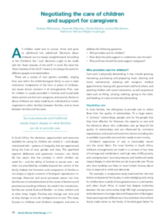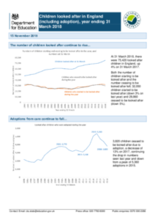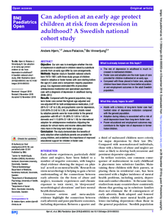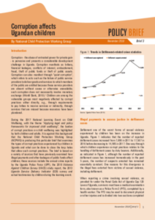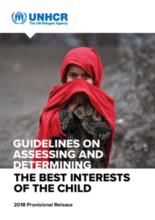Displaying 251 - 260 of 661
In this video, Dr. Kristen Cheney discusses how her work led her to study the growth of the Orphan Industrial Complex and its adverse effects on children, families, communities, and child protection systems.
This chapter from the South African Child Gauge 2018 focuses on childcare and children’s caregivers in South Africa and aims to address the following questions: Who provides care for children? How does the state support or undermine care choices? Why and how should the state support caregivers?
This statistics publication from the UK Department for Education provides information about looked after children in England for the year ending 31 March 2018.
This paper presents findings on the previous life experiences of an entire cohort of ‘difficult to place’ adoptees who were placed in Australia over 26 years.
This is an exploratory study focused on open adoptions from foster care conducted through the public child protection agency in New South Wales, Australia.
The aim of this study was to investigate whether the risk of depression in adulthood in children raised by substitute parents from an early age differ by care arrangements.
This brief from the National Child Protection Working Group (NCPWG) examines the types of corrupt practices experienced by children in Uganda and what can be done to close the loop holes that allow such corrupt practices. The brief highlights the impacts of corruption on children's wellbeing including "instances of falsifying birth histories of children to qualify for orphan status and consequently eligibility for international adoption."
These updated UN High Commissioner for Refugees (UNHCR) Guidelines provide guidance on determining the best interests of the child in decisions affecting children at risk, in particular children who are separated from their parents and families.
This article explores casework practices developed for use in child welfare placements that may be successfully applied to New South Wales to help build the practical skills needed to facilitate openness, empathy and respectful interactions between children in permanent care and their birth families.
This study examined adopted adolescents’ levels of attachment security to parents and aggressiveness as compared to those of community nonadopted adolescents and of clinical nonadopted adolescents.

